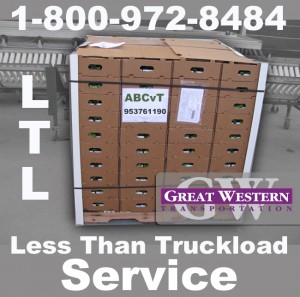Cargo of every type, size, shape and style is transported across the nation’s roadways every single day. These shipments contain food and beverages, consumer goods such as clothing and electronics, building materials and equipment, just to name a few. Dry freight trucking refers to the transportation of goods inside an enclosed, non-temperature controlled trailer. Their use is not restricted to a single industry, or even a few, they are a prominent and important part of nearly every supply chain.
Dry Vans vs Other Trailers
While most people know what a flatbed trailer, or a refrigerated trailer is, they may not fully understand what a dry van is, despite seeing them on the road every day. Dry vans are basically enclosed trailers that are designed to keep cargo safe from the elements, thus, their name. They also offer a high level of security, and privacy for shippers since there are no windows, and doors are kept locked during transit and storage. Dry freight trucking companies use these versatile trailers to accommodate a huge variety of products.
Industries Served
It’s actually quite difficult to find any industry that does not use dry freight trucking to one extent or another. Some exceptions certainly apply, such as those that transport bulk liquids and minerals. However, their use is common in industries such as retail where large amounts of inventory must be transported from warehouses to stores. They are also an important logistics solution for the food and beverage industry, construction companies and endless other industries. The truth is, without these transportation workhorses, access to goods would be heavily restricted and companies would suffer severely.
Full and LTL Capacity
One of the biggest benefits of dry freight shipping is the availability of trailers to ship full and partial loads. A full load generally will fill a 53′ trailer to capacity, or nearly to capacity. The advantage of this is that a large amount of cargo can be stacked inside and delivered in one trip. When shippers have cargo that takes up less space an LTL provider is often employed. Shippers still enjoy the same benefits as those sending full loads, namely on time deliveries and safe handling of products. However, they also realize significant savings since the costs are split between all shippers sharing the trailer.
While dry freight trucking isn’t a glamorous industry, it is an important, and integral part of most every other industry. Companies that offer this vital service work hard to maintain their vehicles in peak running condition, and train their drivers on proper handling procedures. This attention to detail and high level of expectation assures shippers that their cargo always arrives in excellent condition and on time, every time.





